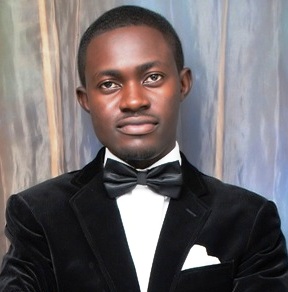‘Sola Fagorusi
Time is a falcon. It flies. And it does so swiftly. The gun sounds had become the norm and my parents had instructed that we lie down at the first sound. Soldiers were all over Lagos and people, especially young people, were on the street pelting them with stones and other handy items. I peeped and saw Soldiers posing to aim shots into the crowd. My mind was too young to extensively understand the manoeuvrings of what I saw but I remember what I saw that morning. I recall the bonfires. I remember that someone was hit by a bullet on the hand and he was quickly taken away by his friends.
Two days earlier, a neighbour’s son had jumped from the balcony of their three storeys building annexing the 3rd Mainland Bridge in Oworosoki. He had jumped in panic of gun shots he heard. It was all chaos in the organised form. Schools closed incessantly and there was always a crowd at newspaper stands trying to outshout one another while sometimes pursing airless postulations and theory.
Following the annulment of the June 12, 1993 election, the Epetedo declaration that followed a year after and the several protests following the arrests of key players in the country’s pro-democracy movement, the country moved to the cliff. Just a weak nudge and all would have fallen apart. The June 12 election of 1993 has always been described as the fairest and freest election ever in the history of the country.
With seeming fierce contention by the two camps of MKO Abiola and Bashir Othman Tofa, the election was then going to be a decider for the fate of the country following runs of military rules. Tofa was the presidential candidate of the National Republican Convention, NRC – the party with the simple emblem of the eagle. Abiola on the other hand was the presidential candidate of the Social Democratic Party, SDP. In what is still today referenced as a first and only, Abiola, a Muslim from Ogun state had another Muslim from Katsina as his running mate. Tofa meanwhile had Ugoh Sylvester from the east as his own vice presidential candidate.
In the Nigeria of 1993, the religious composition of the candidates did not matter. Earlier, Abiola had defeated Baba Gana Kingibe who later became his running mate and Atiku Abubakar for the primaries ticket of the party. Abiola’s campaign given his wealth ran through the length and breadth of the country. Radio and television stations were swamped with his Hope ’93 jingle – Abiola na the man o/SDP na the party/ to solve our problem/and better our lives/ SDP, MKO Kingibe action/ Abiola, Abiola, Abiola, progress…. Even kids in secondary school knew this song. It was simple to sing and it smelt of the hope it promised. And it was somewhat easy to believe.
By the afternoon of the Election Day, the option A4 and open ballot system made it possible to know that it was only a matter of time, Abiola was going to be announced the winner of the election. Given instruction to stop announcing the results, the NEC chairperson then – Professor Humpery Nwosu stopped the election abruptly. It was aborted even though the result was already obvious. Abiola had won and he had not won! Nwosu kept mute. Even his book which he launched in 2008 (fifteen years after the election) and had anticipation from the public on the possibility of unveiling the truth never did. Titled Laying the Foundation for Nigeria’s Democracy: My account of June 12, 1993; Nwosu therein told us that MKO had 8,323,305 votes while Tofa had 6,073,612 votes. He put a figure to what we already knew but then MKO was already dead.
Those who know have told stories of how Abiola won at polling stations in the barracks and the famous one of how right in front of Tofa’s house in Kano, Abiola had also won the election. Given the wealth of Abiola, it was understandable to know that his political machinery was well oiled. It is on record that it was only agents of the SDP at the polling stations that had analogue mobile phones which then was pretty expensive. With this, they monitored the election and fed their headquarters with updates.
Tried as they have, the ghost of June 12 still drifts confidently on our land. Maybe until when a national election in Nigeria equals and possibly surpasses it, the ghost may never consider resting. June 12, 1993 was our finest electoral moment as a nation. The 2011 presidential election chaired by Professor Attahiru Jega had nothing similar to it. Nigeria was torn at its religious and tribal seams showing from results of the election. No political party worth its salt today in Nigeria would ever consider such Muslim-Muslim ticket even though what should count is competence and not ethnic or religious affiliation.
Two decades after, the ghost of June 12 is still alive and possibly that of several people killed extra judicially in the numerous protests that followed. It is in search for a relationship beyond what mere affection can give. Can Jega give it the affection it desperately desires in 2015? The several efforts to kill the ghost has failed especially attempt at the federal level not to recognise the day as the true date for celebrating the values of democracy. The closet shot was the misstep by the president to name the University of Lagos after the celebrated icon and winner of that election. Till date, there is no national cenotaph in honour of this finest of days.
June 12 is our story. In June 12 lies the lesson and model for the future Nigeria desires – one where Chiedu can conveniently win an election in Ekiti State and Yushau can win followership as a vice presidential candidate from voters in the creeks of Bayelsa; a future where the colour of one’s ethnic background would be a faded one in the equation of politics.
On the march again (twice)/ looking for Mr. President/ MKO (was/is) our man o…
@SolaFagro on Twitter
Other articles by Fagro:
Established in March 2013, JarusHub is a Nigerian information hub with focus on career and management. It is rated Nigeria's most authoritative destination for online career resources. It parades an array of Nigerian professionals who share their career experiences with a view to bridging career information gap and mentoring a generation to success. Whether you're a student, a recent graduate or an established professional, or even an executive, you will always find something to learn on JarusHub. All enquiries to jarushub@gmail.com or 0808 540 4500. Facebook: www.facebook.com/jarushub; Twitter: @jarushub or @mcjarus.
2 comments
Let us have your say by leaving a comment belowCancel reply
Recommended For You
-
HE LIKES ACCOUNTING, BUT FEARS ICAN
May 3, 2014 -
O’level Results Combination as a Snag to Dream Job
June 5, 2019






great piece!
The fact remains that we have not learnt any lesson from that memorable event. Because if we had, we should have been able to vote for the right people at those critical decision making periods, elections. We have had it thrice twenty years after June 12 making the wrong choices. We thought democracy was our solution to all the myriads of problems that we have, now we have it and we have not made good use of it. For me, the ghost of June 12 seem to be sleeping otherwise it should help us flush out the wrong rulers that are mauling this country hard. We have been left all alone to right the wrongs of democracy that Abiola and co fought and died for. No thanks to selfishness and sentiments over things that matter.